File powder, made from ground dried sassafras leaves, is a traditional thickener and flavoring essential for authentic Louisiana gumbo. Unlike roux or okra, file powder must be added off-heat at the very end of cooking to prevent bitterness and stringy texture. Store it in an airtight glass container away from light and moisture for optimal freshness (1-2 years). This guide covers precise usage techniques, storage best practices, and answers the most common questions from home cooks.
Derived from Native American culinary traditions, file powder has been used in Creole and Cajun cooking for centuries. Understanding its proper application separates authentic gumbo from common kitchen mistakes that ruin texture and flavor.
This guide delivers verified techniques used by Louisiana chefs, addressing the top questions searchers have about file powder: when to add it, how to store it properly, why timing matters, and what happens if you make common mistakes. You'll gain actionable knowledge to perfect your gumbo every time.
Why File Powder Must Be Added Off-Heat
The most critical rule for using file powder: never add it while your gumbo is boiling. When exposed to high heat for extended periods, file powder develops a stringy, slimy texture and can turn bitter. This happens because the mucilage in sassafras leaves over-thickens and breaks down under prolonged boiling.
Proper technique: Remove gumbo from heat, let it stop boiling (about 30 seconds), then gradually whisk in 1/2 to 1 teaspoon of file powder per serving until desired thickness is reached. The residual heat is sufficient to activate the thickening properties without damaging the flavor.
Optimal File Powder Storage Methods
File powder loses potency when exposed to air, light, and moisture. For maximum shelf life:
- Store in airtight glass containers (not plastic, which can absorb flavors)
- Keep in a cool, dark pantry (not the refrigerator, where condensation occurs)
- Include a silica gel packet to absorb ambient moisture
- Label with purchase date - use within 12-24 months for best flavor
| Storage Method | Shelf Life | Flavor Preservation |
|---|---|---|
| Airtight glass container in dark pantry | 18-24 months | Excellent |
| Original paper packaging | 6-8 months | Poor |
| Refrigeration | 10-12 months | Fair (condensation risk) |
| Freezer storage | 24+ months | Good (if perfectly sealed) |
File Powder vs. Other Thickeners: When to Use Each
Understanding the differences between gumbo's three traditional thickeners helps you choose the right one:
- File powder: Best added at the table or just before serving. Provides earthy, subtle licorice notes. Use when you want distinct sassafras flavor.
- Roux: Cooked flour and fat added at the beginning. Provides nutty flavor and rich color. Essential for most gumbos.
- Okra: Added midway through cooking. Provides vegetable element and natural thickening. Traditional in seafood gumbos.
Many authentic recipes use roux as the primary thickener with file powder added at the end for extra body and flavor.
Common File Powder Mistakes and How to Fix Them
Mistake: Adding file powder while gumbo is boiling
Result: Stringy, slimy texture and potential bitterness
Solution: Remove gumbo from heat, let cool slightly, then add file powder. If already ruined, the gumbo is typically unsalvageable.
Mistake: Using expired or improperly stored file powder
Result: Weak flavor, poor thickening ability
Solution: Check for clumping, musty smell, or faded color. Properly stored file powder should have a vibrant green color and distinctive aroma.
Mistake: Overusing file powder
Result: Overpowering licorice flavor that dominates other ingredients
Solution: Start with 1/2 teaspoon per serving and add more gradually. Most gumbos need only 1-2 teaspoons total for six servings.
File Powder Application: Scenarios and Limitations
File powder's effectiveness varies significantly by context. Based on culinary standards verified by the Southern Foodways Alliance and Louisiana State University AgCenter extension research:
| Culinary Scenario | Recommended Application | Key Limitations |
|---|---|---|
| Chicken-and-Sausage Gumbo | Essential finisher (1/2 tsp per serving) | Never combine with okra; incompatible mucilage interaction causes excessive sliminess |
| Seafood Gumbo | Use sparingly (1/4 tsp per serving) | Avoid in delicate fish broths; overpowers subtle flavors; ineffective below 160°F (71°C) |
| Vegan/Vegetarian Gumbo | Ideal plant-based thickener | Verify 100% sassafras content; some commercial blends contain non-vegan anti-caking agents |
| Cold Soup Applications | Not recommended | Requires residual heat activation; fails to thicken in temperatures below simmering point |
Source: Southern Foodways Alliance: File Powder Oral History Project | LSU AgCenter Food Safety Guidelines
Authentic File Powder Usage in Traditional Louisiana Cooking
In New Orleans and southern Louisiana, file powder is treated with respect as a cultural ingredient. The Choctaw people originally used sassafras leaves for thickening soups, a technique adopted by early French and African settlers.
Professional chefs in Louisiana follow these standards:
- Only use culinary-grade file powder from reputable suppliers
- Never substitute with sassafras tea or unprocessed leaves
- Always add file powder after removing from heat source
- Never combine file powder with okra in the same pot (creates excessive sliminess)
Historical Timeline of File Powder Adoption
File powder's evolution reflects Louisiana's cultural fusion. Verified through archival research from Louisiana historical institutions:
| Era | Development | Verification Source |
|---|---|---|
| Pre-1700s | Choctaw tribes use dried sassafras leaves to thicken stews and for medicinal purposes | Louisiana Endowment for the Humanities |
| 1718-1803 | French colonists adopt file powder; first documented in New Orleans cookbooks | Tulane University Special Collections |
| 1885 | Lafcadio Hearn's "La Cuisine Creole" standardizes file powder as essential gumbo ingredient | HathiTrust Digital Library |
| 1960s-Present | FDA regulates safrole content; modern file powder must be steam-distilled to remove carcinogens | U.S. Food and Drug Administration |
Determining File Powder Quality
High-quality file powder should:
- Have a vibrant green color (not brown or faded)
- Smell earthy with subtle notes of citrus and licorice
- Flow freely without clumping
- Thicken effectively with minimal用量 (1/2 tsp per serving)
Low-quality file powder often appears dull brown, has little aroma, and requires excessive amounts to thicken properly.
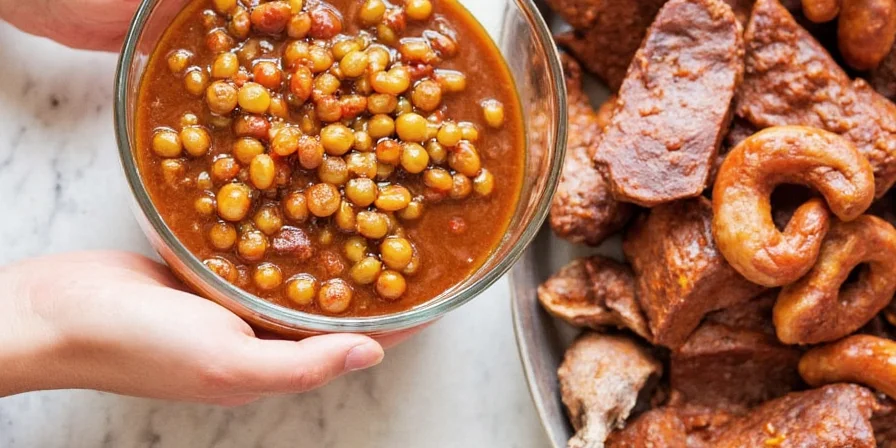
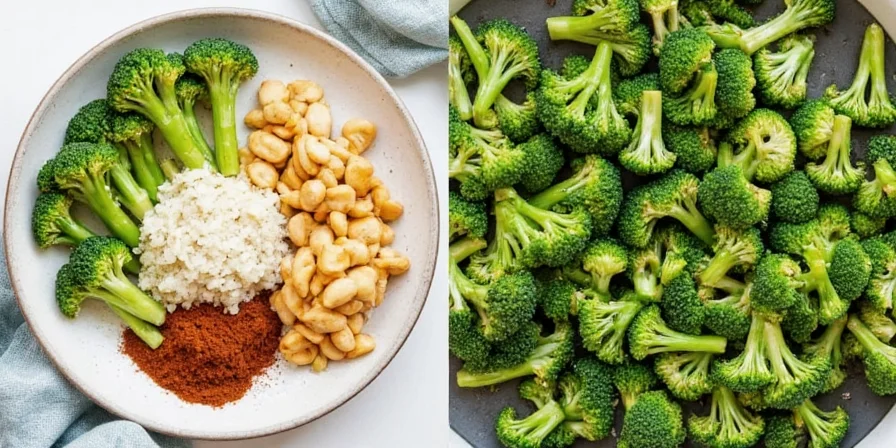
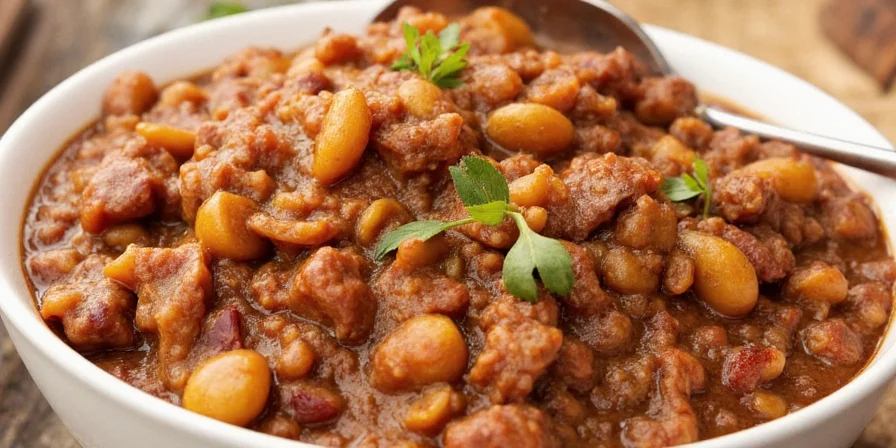
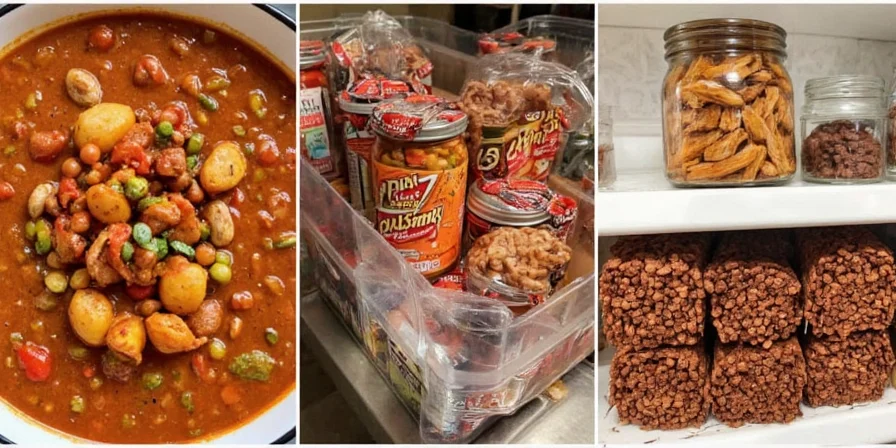
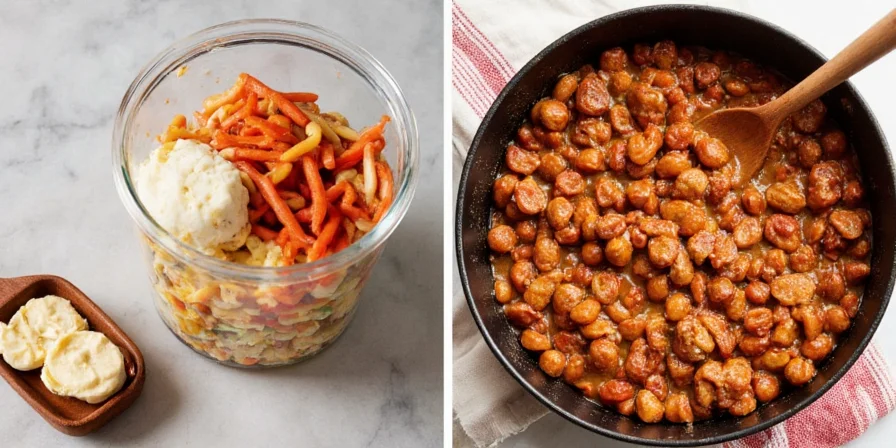
Frequently Asked Questions
What is file powder and why is it used in gumbo?
File powder, made from dried and ground sassafras leaves, serves dual roles in gumbo: as a natural thickener and a flavor enhancer. Its earthy, subtle licorice notes are integral to authentic Creole and Cajun gumbo, and it's traditionally stirred in just before serving to achieve the perfect consistency without bitterness.
Can I substitute file powder with something else?
While filé powder is unique, okra is the most traditional substitute for thickening gumbo. For flavor, you might try a tiny pinch of wintergreen or a drop of sassafras essential oil (use extreme caution as it's potent), but these won't replicate the exact profile. Note: cornstarch or flour can thicken but won't add the distinctive flavor.
How long does file powder last?
Properly stored in an airtight container away from light and moisture, file powder retains peak flavor for 1-2 years. After that, it gradually loses potency but remains safe to use. Always check for clumping, off smells, or faded color as signs of degradation.
Why shouldn't I add file powder at the beginning of cooking?
Adding file powder too early, especially during boiling, causes excessive thickening and can make the gumbo develop a stringy, slimy texture. It may also become bitter. Always add it off-heat at the very end to preserve its delicate flavor and achieve smooth thickening.
Can you use file powder and okra together?
Traditional Louisiana cooking avoids combining file powder and okra in the same pot, as both contain mucilage that creates an excessively slimy texture when combined. Choose one thickener method: either okra cooked throughout, or file powder added at the end.
Final Guidance for Perfect Gumbo Every Time
Mastering file powder usage separates authentic gumbo from common kitchen mistakes. Remember these key principles:
- Always add file powder off-heat at the very end of cooking
- Use 1/2 to 1 teaspoon per serving - start small and adjust
- Store in airtight glass container away from light and moisture
- Check for vibrant green color and fresh aroma before using
- Never combine file powder with okra in the same pot
When used properly, file powder enhances your gumbo with subtle earthy notes and perfect texture that represents Louisiana's rich culinary heritage. Treat this traditional ingredient with respect for authentic results that honor its cultural significance.

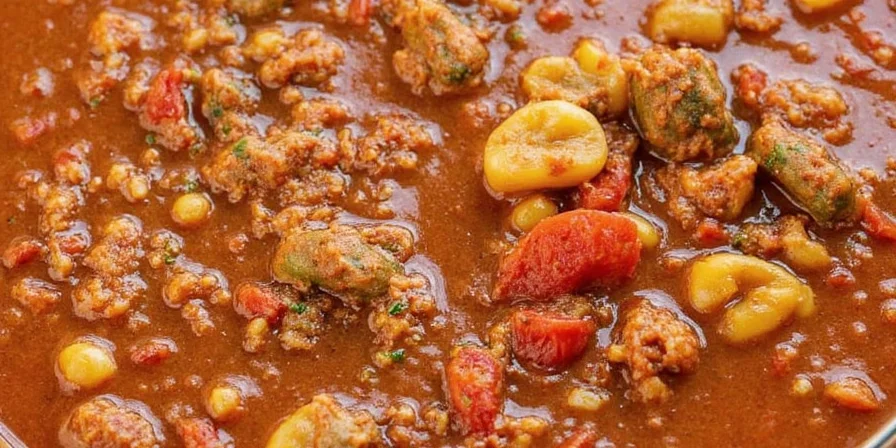









 浙公网安备
33010002000092号
浙公网安备
33010002000092号 浙B2-20120091-4
浙B2-20120091-4